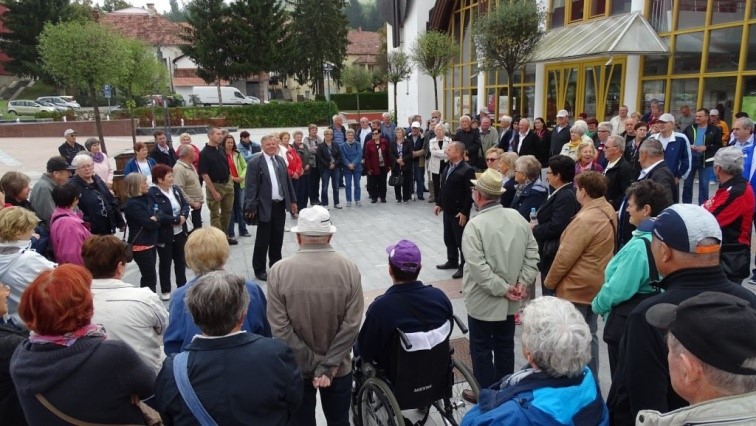“Patients’ families have even less support than patients themselves and are often left alone to manage their life and organise the life of their family member with stroke.” said Milan Čuček, President of the Slovenian Stroke Support Organisation and the Vice President Tatjana Erjavec added “It is challenging for carers to assist them with integration into relevant social networks. Stroke support organisation is currently trying to bridge this gap.”
This week we are investigating what is the main after-stroke problem from the patients’ perspective in Slovenia.
SAFE: What is one issue related to the life after stroke in your country that you think needs special attention?
Stroke Care starts in hospitals and majority will have multidisciplinary teams to take care of stroke survivors. Patients with severe disabilities and rehabilitation potential will continue their rehabilitation either at the Rehabilitation Institute or in dedicated Spa’s around Slovenia. This process takes up to 6 weeks. Nowadays, stroke survivors have the possibility for ongoing visits to neurologists. Systematic rehabilitation support is, however, lacking.
Majority of stroke survivors return to their homes with limited access to further rehabilitation programmes. There is a possibility for subsides home help for maximum 20 hours per week and if medical condition requires, also visits from nurses. Primary level provides physiotherapy across Slovenia, but only on the outpatient basis and in limited amount. Occupational therapy is only available in three primary level institutions around country and it is delivered in patients’ homes. Psychology and speech therapy is virtually not available in the community. Private services are possible and this creates imbalance considering access to health services in favor of those who are financially stronger. Majority of stroke survivors are retired and with lower pensions and have therefore limited access to private therapies. In addition, it is observed that central Slovenia and bigger cities have better long-term support comparing to rural parts around country and North West part of Slovenia.
SAFE: What would be the solution, i.e. what is your organisation’s position regarding this issue?
Slovenia is a small country with population of 2 million and a good network of primary care. So far, primary care provides social service, limited access to physiotherapy and limited occupational therapy services. Ministry of Health has appointed special group, dealing with organisation of long term support for stroke survivors and creating a document for local long-term multidisciplinary stroke care. In addition, the legislation, dealing with long-term home care also includes multidisciplinary care. The challenge remains implementation of both, related to provide enough financial resources.
Slovenia has well developed Spa rehabilitation. Stroke survivors have an access to Spa rehabilitation in acute stage. Regular access to Spa rehab in sub-acute and chronic stage is not guaranteed by insurance. Stroke Support Organisation highly value this rehabilitation programs for stroke survivors and their relatives and therefore enables it for 100 members per year, being aware that this is not enough.
Ongoing support for carers is essential and it could be organised via educational sessions, self-help groups, organised respite care.
Patient organisations, providing social and health support in public interest, should have an ongoing financial support. Accessing finances via public calls requires professionally that can hardly work voluntarily all the time.
SAFE: Please tell us more about your organisation.
Slovenian Stroke Support Organisation is going to celebrate 30 years of its existence. It operates through 22 stroke clubs around Slovenia and it has 3000 members; mainly stroke survivors and relatives, but also few professionals (volunteers) and other supporters. Leaders of local stroke clubs are stroke survivors. Registered is as a Humanitarian organisation working in public interest. Main financing comes on annual basis from National lottery (FIHO). Additional income comes from local municipalities where clubs are operating, public calls for NGOs, memberships, donations and sponsorship, collaboration in research projects.
Main activities are enabling long-term rehabilitation support via SPA’s, organised physiotherapy in stroke clubs, sport activities, organized exercises (Nordic walking), organized walks. In addition, social networking, educational sessions for stroke survivors and families, organised creative workshop. In last years we provide workshops about self-care and aphasia group. Each year is organised National gathering and this year it will be in Postojna cave for over 370 members. Twice per year, journal KAPNIK is published and the website is constantly updated.
With respect to promotion we organize several events, including traditional walk around Ljubljana, for the European stroke day. Several events are also organized around World Stroke Day. The WSO has given award to our SSO for the best campaign in high income countries for year 2018.





